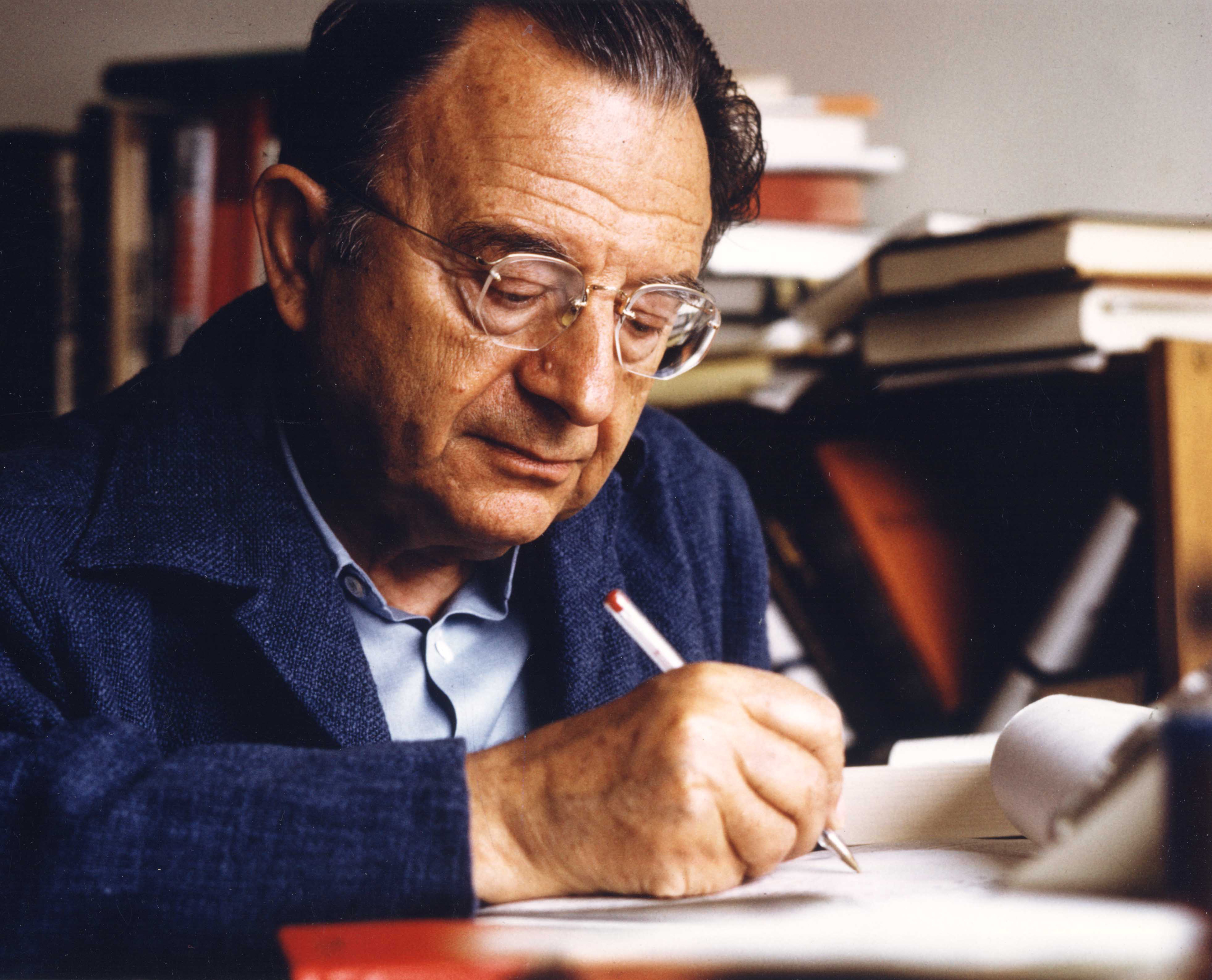Erich Fromm Berühmte Zitate
Zitate über Menschen von Erich Fromm
Die Kunst des Liebens
Kapitel: Autorität ausüben - S. 56-57
Haben oder Sein. Die seelischen Grundlagen einer neuen Gesellschaft
Erich Fromm, "Anatomie der menschlichen Destruktivität", S. 33
Zitate
Haben oder Sein. Die seelischen Grundlagen einer neuen Gesellschaft, Überarbeitet von Rainer Funk, 36. Aufl., dtv Muenchen 2009. S. 18
"We are a society of notoriously unhappy people: lonely, anxious, depressed, destructive, dependent — people who are glad we have killed the time we are trying so hard to save." - To Have or to Be? Continuum 1996. p. 5
Haben oder Sein. Die seelischen Grundlagen einer neuen Gesellschaft
„Durch die Maschine ist die Zeit zur Beherrscherin des Menschen geworden.“
Haben oder Sein. Die seelischen Grundlagen einer neuen Gesellschaft, überarbeitet v. Rainer Funk, 36. Aufl., dtv München 2009. S. 160. Aus dem Englischen von Brigitte Stein. ISBN 978-3-423-34234-6 book2look.com http://book2look.com/vBook.aspx?id=9783423342346
"Via the machine, time has become our ruler." - To Have or to Be? Continuum 1996. p. 129
Haben oder Sein. Die seelischen Grundlagen einer neuen Gesellschaft
Zitate über Liebe von Erich Fromm

„In der Liebe kommt es zu dem Paradoxon, daß zwei Wesen eins werden und trotzdem zwei bleiben.“
"Die Kunst des Liebens", Frankfurt/M 1992 S. 31, Verlag Ullstein GmbH
"In the experience of love the paradox happens that two people become one, and remain two at the same time." - The Sane Society. Fawcett 1985. p. 37
Die Kunst des Liebens
„Nichts fördert das Kreative mehr als die Liebe, vorausgesetzt, sie ist echt.“
Pathologie der Normalität
„Liebe ist das Kind der Freiheit, niemals das der Beherrschung.“
"Die Kunst des Liebens", Frankfurt/M 1992 S.39, Verlag Ullstein GmbH
"love is the child of freedom, never that of domination." - The Sane Society
Die Kunst des Liebens
Variante: Die Liebe ist das Kind der Freiheit,
niemals der Beherrschung
"Die Kunst des Liebens", Frankfurt/M (u.a.) 1956. S. 170.
"If it is true, as I have tried to show, that love is the only sane and satisfactory answer to the problem of human existence, then any society which excludes, relatively, the development of love, must in the long run perish of its own contradiction with the basic necessities of human nature." - The Art of Loving (1956). Chapter 2
Die Kunst des Liebens
Psychoanalyse und Ethik, in: Analytische Charaktertheorie Band II. Autorisierte Übersetzung von Liselotte und Ernst Mickel. Deutsche Verlags-Anstalt, 1980. S. 14
"[...] pleasure cannot be a criterion of value. For there are people who enjoy submission and not freedom, who derive pleasure from hate and not from love, from exploitation and not from productive work.
Psychoanalyse und Ethik
Erich Fromm Zitate und Sprüche
Die Kunst des Liebens
Die Kunst des Liebens
Die Kunst des Liebens
La patología de la normalidad
Die Kunst des Liebens
"Anatomie der menschlichen Destruktivität", S. 186
"War as an institution was a new invention, like kingdom or bureaucracy, made around 3000 BC. Then as now, it was not caused by psychological factors, such as human aggression, but, aside from the wishes for power and glory of the kings and their bureaucracy, was the result of objective conditions thast made war useful and which, as a consequence, tended to generate and increase human destructiveness and cruelty." - The Evidence Against the Instinctivist Thesis, in: The Anatomy of Human Destructiveness. p. 163
Anatomie der menschlichen Destruktivität
„Die Normalsten sind die Kränkesten. Und die Kranken sind die Gesündesten.“
Das Zusichkommen des Menschen. Fernsehinterview mit Micaela Lämmle und Jürgen Lodemann, in: Basler Magazin, Basel, Nr. 47 (24.12.1977), S. 3. Wiederveroeffentlicht in: Erich Fromm als Vordenker: "Haben oder Sein" im Zeitalter der ökologischen Krise, Rainer Funk, Erich Fromm, Marko Ferst, Burkhard Bierhoff, Johannes Rau u.a., Edition Zeitsprung, Berlin 2002. S. 18
Erich Fromm: Zitate auf Englisch
“The task we must set for ourselves is not to feel secure, but to be able to tolerate insecurity.”
Quelle: The Art of Loving
“if i am what i have, and i lose what i have, who then am i?”
Variante: If I am what I have, and if I lose what I have, who then am I?
Quelle: The Anatomy of Human Destructiveness
Quelle: Man for Himself (1947), Ch. 4 "Problems of Humanistic Ethics"
“There is no meaning to life except the meaning man gives his life by the unfolding of his powers.”
Quelle: Man for Himself: An Inquiry into the Psychology of Ethics
Quelle: Man for Himself: An Inquiry into the Psychology of Ethics
"Disobedience as a Psychological and Moral Problem" in On Disobedience and Other Essays (1981)
Human Nature and Social Theory (1969)
"Psychoanalyse und Soziologie" (1929); published as "Psychoanalysis and Sociology" as translated by Mark Ritter, in Critical Theory and Society : A Reader (1989) edited by S. E. Bronner and D. M. Kellner
The Art of Loving (1956)
Kontext: The lack of objectivity, as far as foreign nations are concerned, is notorious. From one day to another, another nation is made out to be utterly depraved and fiendish, while one’s own nation stands for everything that is good and noble. Every action of the enemy is judged by one standard — every action of oneself by another. Even good deeds by the enemy are considered a sign of particular devilishness, meant to deceive us and the world, while our bad deeds are necessary and justified by our noble goals which they serve.
Credo (1965)
